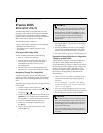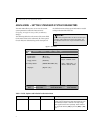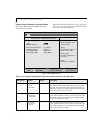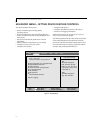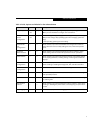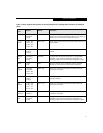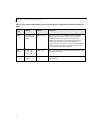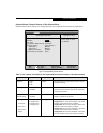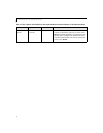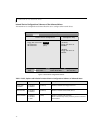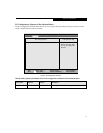
10
LifeBook B Series Notebook BIOS
Serial/Parallel Port Configurations Submenu of the Advanced Menu
The Serial/Parallel Port Configurations submenu allows
you to set the I/O addresses and interrupt levels for the
serial, infrared and parallel ports of your notebook.
Figure 4. Serial/Parallel Port Configurations Submenu
CAUTION
I/O addresses, DMA channels and Interrupt levels can
be entered in various ways, including via the BIOS setup
utility, the control software for the I/O device, or the
hardware. If any two ports or devices, serial or parallel,
have the same I/O address assigned, your notebook will
not function normally. Please keep a record of original
settings before making any changes in the event that a
restoration is required. See your hardware and software
documentation as well as the setup utility to determine
settings, limitations, etc.
POINTS
• To prevent IRQ and address conflicts, avoid changing
the default settings. If you must change the settings,
you can call 1-800-8FUJITSU for technical assistance.
• The BIOS will warn you of a resource conflict by plac-
ing a yellow asterisk next to each device that is in
conflict.
• All I/O addresses in Table 4 are in hexadecimal.
PhoenixBIOS Setup Utility
F1 Help
ESC Exit
Select Item
Select Menu
-/Space
Enter
F9 Setup Defaults
F10 Save and Exit
Change Values
Select Sub-Menu
▲
Advanced
Item Specific Help
Serial Port: [Enabled]
I/O Address: [3F8 - 3FF]
Interrupt: [IRQ 4]
Infrared Port: [Enabled]
Mode: [FIR]
I/O Address: [2E8 - 2EF]
Interrupt: [IRQ 3]
I/O Address: [118 - 11F]
DMA Channel: [DMA 3]
Parallel Port: [Enabled]
Mode: [Bi-directional]
I/O Address: [378 - 37F]
Interrupt: [IRQ 7]
[Disabled]
The port is disabled.
[Enabled]
The port is enabled
with user configuration.
[Auto]
The port is configured
depending on 'Plug &
Play OS' setting.
Serial/Parallel Port Configurations



